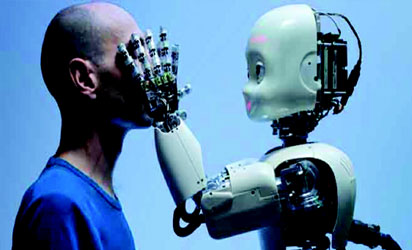Technology is transforming the world at an unprecedented pace, and one of the most significant drivers of this change is artificial intelligence (AI) and automation.
From manufacturing to finance, healthcare to customer service and even the media space, AI-powered systems and automation technologies are revolutionising industries, making work more efficient while also raising important questions about the future of jobs.
What Are AI and Automation?
Artificial Intelligence (AI) refers to the simulation of human intelligence in machines. AI systems are designed to perform tasks that typically require human cognitive abilities, such as learning, problem-solving, decision-making, and language understanding. These systems can analyse vast amounts of data, recognise patterns, and make predictions or recommendations. Examples of AI include virtual assistants (e.g., Siri, Alexa), chatbots, image recognition software, and self-driving cars.
Automation, on the other hand, is the use of technology to perform tasks with minimal or no human intervention. It can be simple, like an automatic email response, or complex, like robotic assembly lines in manufacturing. Automation improves efficiency, reduces errors, and increases productivity. It is commonly used in industries such as manufacturing, logistics, banking, and customer service.
The Role of AI and Automation in the Workplace:
AI and automation are designed to perform tasks that were once solely handled by humans. This includes everything from data entry and analysis to customer support, medical diagnostics, and even creative processes like writing and design. Businesses are leveraging these technologies to enhance productivity, reduce errors, and improve decision-making.
Some key areas where AI and automation are making an impact include:
– Manufacturing and Logistics: Robotics and AI-driven automation are streamlining production lines, inventory management, and delivery logistics. Smart factories use AI to optimise efficiency and predict maintenance needs, reducing downtime and operational costs.
– Healthcare: AI-powered tools assist in diagnosing diseases, personalising treatment plans, and automating administrative tasks. Robots are also being used in surgeries and elderly care, improving patient outcomes.
– Finance: AI algorithms detect fraud, automate trading, and provide personalised financial advice. Chatbots and virtual assistants handle customer inquiries, improving response times and service quality.
– Education: AI-driven platforms personalise learning experiences, helping students grasp complex topics through adaptive learning models. Virtual tutors and automated grading systems enhance the education sector’s efficiency.
– Customer Service and Retail: AI chatbots, voice assistants, and automated checkout systems are transforming how businesses interact with customers, providing 24/7 support and reducing reliance on human labour.
The Impact on Jobs: Opportunity or Threat?
The rise of AI and automation has sparked debates about job displacement. Many fear that automation will replace human workers, especially in repetitive and low-skilled jobs. According to reports from organizations like the World Economic Forum, AI could displace millions of jobs globally over the next decade. However, it is also expected to create new job opportunities in tech-driven industries.
Jobs at Risk of Automation:
– Data entry clerks
– Telemarketers
– Factory workers
– Cashiers
– Administrative support staff
Emerging Job Opportunities:
– AI and machine learning specialists
– Robotics engineers
– Cybersecurity analysts
– Data scientists
– Digital marketing professionals
Rather than eliminating jobs entirely, AI is reshaping job roles. Many positions are evolving to require a blend of technical skills and human-centric capabilities like problem-solving, creativity, and emotional intelligence.
The Skills Needed for the Future of Work:
To thrive in an AI-driven world, workers must adapt by developing new skills. Some essential skills for the future include:
– Technical Proficiency: Understanding how AI, data analysis, and automation work can give job seekers a competitive edge. Learning programming, cloud computing, and cybersecurity will be valuable.
– Critical Thinking and Problem-Solving: AI may process data, but humans must interpret results, make ethical decisions, and solve complex problems AI cannot handle.
– Creativity and Innovation: Automation excels at routine tasks, but creativity is uniquely human. Skills in design, storytelling, and strategic thinking will be highly sought after.
– Emotional Intelligence and Communication: As AI takes over technical tasks, the ability to communicate effectively, lead teams, and empathize with others will be crucial.
– Adaptability and Lifelong Learning: The rapid evolution of technology means continuous learning is essential. Professionals must be open to reskilling and upskilling throughout their careers.
How Businesses and Governments Can Prepare:
The transition to an AI-powered workforce requires collaboration between businesses, governments, and educational institutions. Key steps to ensure a smooth transition include:
– Investment in Reskilling Programs: Governments and companies must invest in upskilling initiatives to help workers transition to new roles. Online courses, vocational training, and AI literacy programs can bridge the skills gap.
– Ethical AI Development: AI systems should be designed with transparency, fairness, and accountability in mind to prevent job discrimination and ensure ethical decision-making.
– Job Creation Policies: Governments must develop policies that encourage innovation and job creation in AI-related fields while supporting displaced workers with social safety nets.
– Encouraging Human-AI Collaboration: Rather than viewing AI as a replacement, businesses should focus on augmenting human capabilities with AI tools, ensuring a balanced and productive workforce.
AI and automation are reshaping careers, bringing both challenges and opportunities. While some jobs will disappear, new ones will emerge, and many existing roles will transform. The key to thriving in the future of work is adaptability—embracing continuous learning, acquiring new skills, and leveraging AI as a tool for innovation rather than a threat. With the right approach, AI can enhance human potential, creating a more efficient, creative, and inclusive workforce for the years to come.
This future is not something to fear but to prepare for—and those who stay ahead of the curve will reap the benefits of a technology-driven world.
